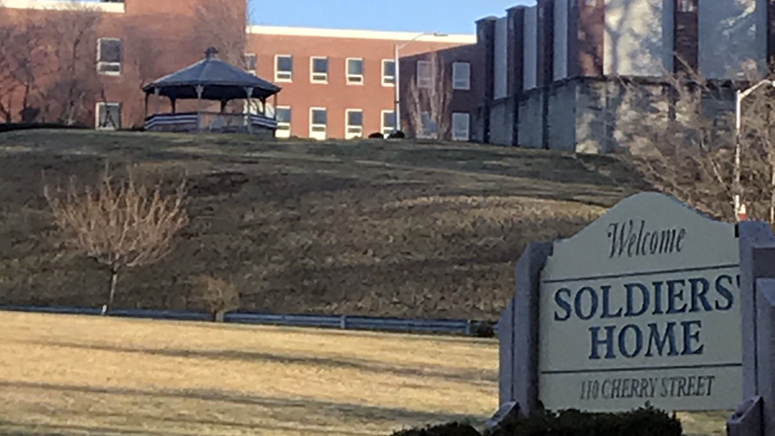Health and Human Services Secretary Marylou Sudders believes that a lack of preparation and infection control protocols, rather than staffing issues or the background of the Holyoke Soldiers’ Home’s superintendent, was the biggest factor behind a tragic COVID-19 outbreak that struck the facility last spring.
Nurses who worked in the long-term care facility for veterans, however, do not agree.
Joan Miller, a member of the Massachusetts Nurses Association union and a registered nurse at the home, told lawmakers on Thursday that she thinks much of the suffering — at least 76 veteran deaths tied to a potent outbreak that hit in March 2020 — could have been avoided if state officials had hired someone licensed as a nursing home administrator to run the facility.
“If we had had a licensed medical administrator, whatever the terms are, I believe that this would not have happened,” Miller said. “I think that is a direct reason: the lack of leadership, lack of medical background, and the staffing issues that we have had all along.”
A special legislative commission convened to investigate the springtime crisis at the Holyoke Soldiers’ Home, which experienced one of the deadliest long-term care outbreaks in the state and likely the country. The panel heard hours of testimony and competing views on the role that staffing and qualification issues played.
Several speakers, including Miller, contended that the tenure of former Superintendent Bennett Walsh, who was in charge during the outbreak, is evidence that the state should prioritize hiring leaders with licensing and experience leading long-term care facilities.
Gov. Charlie Baker appointed Walsh, a 24-year military veteran who had little experience in clinical or residential care, to oversee the Holyoke home in May 2016. Former U.S. Attorney Mark Pearlstein flagged that inexperience as a factor in a report investigating the circumstances of the many deaths.
Sudders, the Baker administration’s health care chief, expressed skepticism that someone with different qualifications could have navigated the COVID-19 pandemic differently if the structural issues remained.
Even if the home had a fully licensed administrator in charge in March 2020, Suders said she believes the virus still would have ravaged the home due to an absence of “clinical and operating protocols.”
“I don’t think one person would have been able to have stopped that, unless they had put into place those policies,” Sudders said. “If those policies and procedures were not in place, a licensed nursing home administrator could not have turned that around.”
Kevin Jourdain, a member and former chair of the Holyoke home’s board of trustees, told the committee that he believes a new permanent superintendent “needs be a licensed nursing home administrator.”
The current acting superintendent, Michael Lazo, does not have that certification, which Jourdain described as a result of the board needing to find someone quickly to succeed Val Liptak, who took over following Walsh’s removal in March.
Walsh and former Holyoke Soldiers’ Home medical director David Clinton face criminal neglect charges for their role in the outbreak, with Attorney General Maura Healey alleging their decision to combine separate wards exposed patients who did not have the highly infectious virus to those who did.
Lawmakers have chosen to wait on reforms sought by the governor last June until after the panel completes its investigation, which is one of several independent probes into the outbreak.
Staffing issues are also a factor. Sudders said a staffing study had been underway examining the workforce at the facility before the outbreak, prompted by some “management-labor issues” and concerns such as the fact that there was no permanent staffing schedule in place.
Asked if staffing deficiencies contributed to the outbreak, Sudders replied that a “more fundamental” issue was that internal processes that could protect residents from a pandemic did not exist. Many other nursing homes in Massachusetts — including the other state-run soldiers’ home in Chelsea — faced pandemic threats, Sudders said, but were not hit as hard because “their internal structures didn’t collapse.”
“What happened at Holyoke, from my read of everything, was a complete collapse because it didn’t exist,” Sudders told the committee. “So staff were left on their own to come up with responses. We left staff on the front lines without the clinical and management oversight and support to manage through a pandemic.”
Liptak, however, told lawmakers that when she arrived in March to help mitigate the crisis, there were not enough caretakers to meet residents’ needs, a view shared by Miller, who pushed back on Sudders’s description.
“When you’re on the unit, when you’re on the floor, when you’re working that day, staff does not agree,” Miller said. “There is not enough staff.”
(Copyright (c) 2024 State House News Service.

